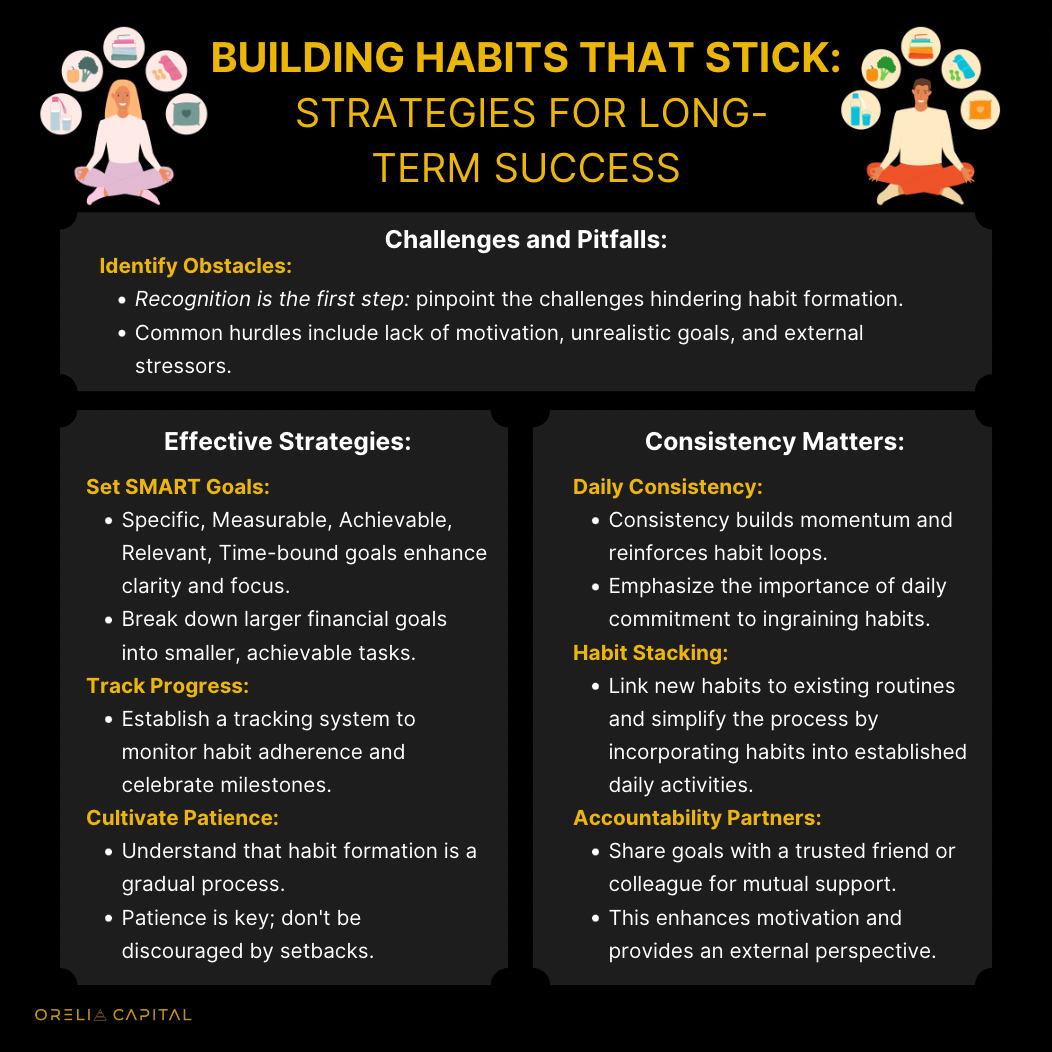The Science of Habits: Cultivating Positive Daily Rituals

Introduction:
In the fast-paced world of finance, success often hinges on effective habits and routines. Understanding the science behind habit formation is a personal development endeavour and a strategic tool for financial prowess. Let's delve into the neurological and psychological aspects of cultivating positive daily rituals.
Neuroscience of Habits: Understanding the Brain's Role in Habit Formation
Neurological Processes:
- Neurons and Habit Formation: Neurons wire together as habits form, creating efficient neural pathways.
- Role of Dopamine: The brain's reward system, specifically dopamine, reinforces habitual behaviour.
- Neuroplasticity: The brain's ability to adapt, emphasizing the potential for positive habit cultivation.
Behavioural Psychology: Breaking Down Habit Loops for Lasting Change
Breaking habits down to their basics, we find a three-step loop: cue, routine, and reward. It's like a mini-cycle that our brains follow without us even realizing it. Let's look at how understanding this loop can help us change our behaviours positively.
Habit Loop Deconstruction:
- Cue, Routine, Reward: Every habit starts with a cue that triggers a routine, followed by a reward. Knowing this helps us figure out how to change habits we don't want and build new ones.
Psychological Principles: Why it Works
- Rewards Make a Difference: Getting a good feeling or reward after doing something makes our brains want to do it again. This is like training our brains to like certain actions.
- Changing Behaviors: By connecting positive outcomes with good habits, we can train our brains to choose better routines over time.
Practical Tips for Modification:
- Identifying Cues: The first step is to notice what makes us start a habit. It could be stress, boredom, or even a specific time of day.
- Modifying Routines: Once we know what starts a habit, we can change what we do in response to that trigger. Instead of a negative routine, we can replace it with a positive one.
- Optimizing Rewards: The reward at the end is like a pat on the back for our brains. We can improve this by connecting it to our long-term financial goals. That way, our brains see positive behaviour as something worth doing repeatedly.
The Power of Keystone Habits: Transforming Your Life One Habit at a Time
What are Keystone Habits?
- Keystone habits aren't just regular routines; they're particular habits that kickstart many good changes in different parts of your life. Think of them as the key that unlocks positive actions everywhere.
Examples of Keystone Habits:
- Take regular exercise, for instance. It's not just about staying fit; it can lead to eating better, sleeping well, and even making smarter money choices. Another keystone habit could be planning your day, helping you manage time better and make wiser financial decisions.
Starting a Chain Reaction:
- Keystone habits are like the first domino in a row. Once you start them, they set off a series of good things. Exercising regularly is not just about staying healthy; it can also make you more disciplined, boost your energy, and help you think better—important qualities in the money world.
How to Make Them Work for You:
- To use keystone habits, think about what you want to achieve. Find a habit that naturally leads to other good things when you do it regularly. For someone in finance, it could be looking at daily market trends. This habit can help you stay ahead in your job and make better money plans.

Mindful Living: Integrating Mindfulness into Daily Rituals for a Healthier Lifestyle
Making the Money-Mindfulness Connection:
- Why it Matters: Understand why being mindful about money is crucial. Being mindful helps you make money decisions with more awareness, like thinking carefully about spending, saving, and investing.
How Being Present Helps:
- Less Stress: Explore how mindfulness can lower money-related stress. Instead of worrying about the future or dwelling on the past, mindfulness keeps you focused on what's happening now.
- Better Choices: Learn about studies showing that people who practice mindfulness tend to make wiser money choices because they think things through instead of acting impulsively.
Easy Ways to Do It:
- Mindful Spending: Share simple tips for bringing mindfulness into daily money activities. For instance, before making a big purchase, suggest considering whether it aligns with your values and long-term goals.
- Mindful Budgeting: Offer ideas for adding mindfulness to budgeting, like taking short breaks to relax during budget sessions.
Conclusion:
Drawing from James Clear's "Atomic Habits," we see a resonating theme: small changes yield remarkable results. Just as atoms are the building blocks of matter, tiny habits compound into success, financially and personally. Financial professionals can architect a future of wealth, one positive habit at a time, by understanding the neuroscience and psychology behind habits, leveraging keystone habits, employing effective strategies, and embracing mindfulness.

We hope you enjoyed this edition of our newsletter. If you found it helpful, please consider sharing it with others who might benefit from this information.
At Orelia Capital, we believe that feedback is a gift. Your feedback can help us improve our content and provide more value to our readers.





